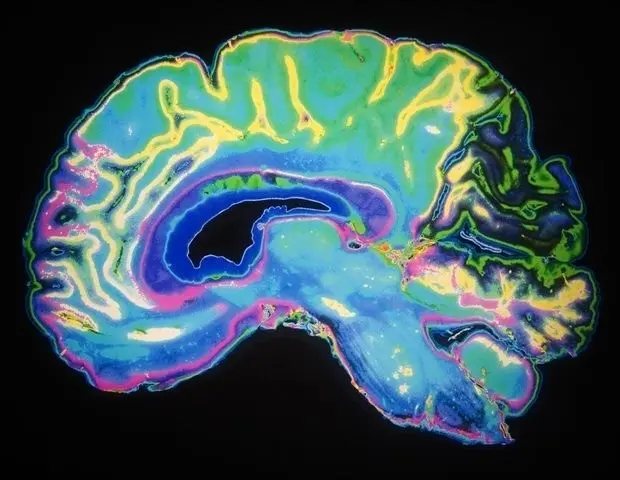AI-Augmented Human Instruction Enhances Neurosurgical Training, Study Finds
2 Sources
2 Sources
[1]
AI and human feedback together improve neurosurgical training
McGill UniversityAug 6 2025 Artificial intelligence (AI) is becoming a powerful new tool in training and education, including in the field of neurosurgery. Yet a new study suggests that AI tutoring provides better results when paired with human instruction. Researchers at the Neurosurgical Simulation and Artificial Intelligence Learning Centre at The Neuro (Montreal Neurological Institute-Hospital) of McGill University are studying how AI and virtual reality (VR) can improve the training and performance of brain surgeons. They simulate brain surgeries using VR, monitor students' performance using AI and provide continuous verbal feedback on how students can improve performance and prevent errors. Previous research has shown that an intelligent tutoring system powered by AI developed at the Centre outperformed expert human teachers, but these instructors were not provided with trainee AI performance data. In their most recent study, the researchers recruited 87 medical students from four Quebec medical schools and divided them into three groups: one trained with AI-only verbal feedback, one with expert instructor feedback, and one with expert feedback informed by real-time AI performance data. The team recorded the students' performance, including how well and how quickly their surgical skills improved while undergoing the different types of training. They found that students receiving AI-augmented, personalized feedback from a human instructor outperformed both other groups in surgical performance and skill transfer. This group also demonstrated significantly better risk management for bleeding and tissue injury-two critical measures of surgical expertise. The study suggests that while intelligent tutoring systems can provide standardized, data-driven assessments, the integration of human expertise enhances engagement and ensures that feedback is contextualized and adaptive. Our findings underscore the importance of human input in AI-driven surgical education. When expert instructors used AI performance data to deliver tailored, real-time feedback, trainees learned faster and transferred their skills more effectively." Bianca Giglio, lead study author While this study was specific to neurosurgical training, its findings could carry over to other professions where students must acquire highly technical and complex skills in high-pressure environments. "AI is not replacing educators-it's empowering them," added senior author Dr. Rolando Del Maestro, a neurosurgeon and current Director of the Centre, "by merging AI's analytical power with the critical guidance of experienced instructors, we are moving closer to creating the "Intelligent Operating Room" of the future capable of assessing and training learners while minimizing errors during human surgical procedures." The study was published in the journal JAMA Surgery on Aug. 6, 2025. It was funded by the Brain Tumour Foundation of Canada, the Royal College of Physicians and Surgeons of Canada, a Mitacs Accelerate Grant, the Franco Di Giovanni Foundation, Canadian Graduate Scholarships, Le Fonds de recherche du Québec - Santé, and a McGill University Max Binz Fellowship. McGill University Journal reference: Giglio, B., et al. (2025). Artificial Intelligence-Augmented Human Instruction and Surgical Simulation Performance. JAMA Surgery. doi.org/10.1001/jamasurg.2025.2564
[2]
Human instruction with AI guidance provides best results in neurosurgical training, study finds
Artificial intelligence (AI) is becoming a powerful new tool in training and education, including in the field of neurosurgery. Yet a new study suggests that AI tutoring provides better results when paired with human instruction. Researchers at the Neurosurgical Simulation and Artificial Intelligence Learning Center at The Neuro (Montreal Neurological Institute-Hospital) of McGill University are studying how AI and virtual reality (VR) can improve the training and performance of brain surgeons. The study was published in the journal JAMA Surgery. They simulate brain surgeries using VR, monitor students' performance using AI and provide continuous verbal feedback on how students can improve performance and prevent errors. Previous research has shown that an intelligent tutoring system powered by AI developed at the Center outperformed expert human teachers, but these instructors were not provided with trainee AI performance data. In their most recent study, the researchers recruited 87 medical students from four Quebec medical schools and divided them into three groups: one trained with AI-only verbal feedback, one with expert instructor feedback, and one with expert feedback informed by real-time AI performance data. The team recorded the students' performance, including how well and how quickly their surgical skills improved while undergoing the different types of training. They found that students receiving AI-augmented, personalized feedback from a human instructor outperformed both other groups in surgical performance and skill transfer. This group also demonstrated significantly better risk management for bleeding and tissue injury -- two critical measures of surgical expertise. The study suggests that while intelligent tutoring systems can provide standardized, data-driven assessments, the integration of human expertise enhances engagement and ensures that feedback is contextualized and adaptive. "Our findings underscore the importance of human input in AI-driven surgical education," said lead study author Bianca Giglio. "When expert instructors used AI performance data to deliver tailored, real-time feedback, trainees learned faster and transferred their skills more effectively." While this study was specific to neurosurgical training, its findings could carry over to other professions where students must acquire highly technical and complex skills in high-pressure environments. "AI is not replacing educators -- it's empowering them," added senior author Dr. Rolando Del Maestro, a neurosurgeon and current Director of the Center, "by merging AI's analytical power with the critical guidance of experienced instructors, we are moving closer to creating the 'Intelligent Operating Room' of the future, capable of assessing and training learners while minimizing errors during human surgical procedures."
Share
Share
Copy Link
A new study from McGill University reveals that combining AI-driven performance data with human expertise leads to superior outcomes in neurosurgical training, potentially revolutionizing medical education and surgical practices.
AI and Human Collaboration Enhances Neurosurgical Training
A groundbreaking study conducted by researchers at the Neurosurgical Simulation and Artificial Intelligence Learning Centre at The Neuro (Montreal Neurological Institute-Hospital) of McGill University has revealed that combining artificial intelligence (AI) with human instruction leads to superior outcomes in neurosurgical training
1
2
. The study, published in JAMA Surgery on August 6, 2025, demonstrates the potential of AI to revolutionize medical education and surgical practices.Study Design and Methodology
The research team, led by Bianca Giglio and Dr. Rolando Del Maestro, recruited 87 medical students from four Quebec medical schools for the study. The participants were divided into three groups, each receiving different types of training:
- AI-only verbal feedback
- Expert instructor feedback
- Expert feedback informed by real-time AI performance data
The study utilized virtual reality (VR) simulations of brain surgeries, with AI monitoring students' performance and providing continuous verbal feedback on improvement and error prevention
1
.
Source: Medical Xpress
Key Findings
The results of the study were striking:
- Students receiving AI-augmented, personalized feedback from human instructors outperformed both other groups in surgical performance and skill transfer.
- This group also demonstrated significantly better risk management for critical measures of surgical expertise, such as bleeding and tissue injury
1
2
.
Lead author Bianca Giglio emphasized, "Our findings underscore the importance of human input in AI-driven surgical education. When expert instructors used AI performance data to deliver tailored, real-time feedback, trainees learned faster and transferred their skills more effectively"
1
.Related Stories
Implications for Medical Education and Beyond
While the study focused on neurosurgical training, its findings have broader implications:
- The research suggests that intelligent tutoring systems can provide standardized, data-driven assessments, but the integration of human expertise enhances engagement and ensures contextualized, adaptive feedback
1
. - This approach could potentially be applied to other professions requiring the acquisition of highly technical and complex skills in high-pressure environments
2
.
Dr. Rolando Del Maestro, senior author and Director of the Centre, stated, "AI is not replacing educators—it's empowering them. By merging AI's analytical power with the critical guidance of experienced instructors, we are moving closer to creating the 'Intelligent Operating Room' of the future, capable of assessing and training learners while minimizing errors during human surgical procedures"
1
2
.Future Prospects
The success of this study opens up exciting possibilities for the future of medical training and practice:
- The development of "Intelligent Operating Rooms" that can assess and train learners while minimizing errors during actual surgical procedures
1
2
. - Potential applications of this AI-augmented human instruction model in other fields requiring complex skill acquisition
2
.
As AI continues to evolve, its integration with human expertise in medical education and practice promises to enhance the quality of training and, ultimately, patient care. This study marks a significant step towards realizing that potential in the field of neurosurgery and beyond.
References
Summarized by
Navi
[1]
Related Stories
AI-Powered Surgical Robot Learns to Perform Complex Procedures by Watching Videos
12 Nov 2024•Science and Research

Medical schools deploy AI patients to transform how student doctors learn clinical skills
22 Jan 2026•Health

Researchers Develop AI Training Method Mimicking Physician Education for Medical Image Analysis
16 Oct 2024•Science and Research

Recent Highlights
1
French Police Raid X Office as Grok Investigation Expands to Include Holocaust Denial Claims
Policy and Regulation

2
OpenAI launches Codex MacOS app with GPT-5.3 model to challenge Claude Code dominance
Technology

3
Anthropic releases Claude Opus 4.6 as AI model advances rattle software stocks and cybersecurity
Technology





